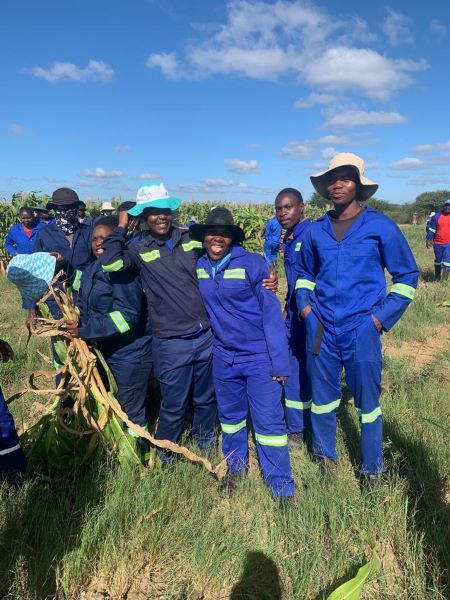Standard Bank and Sappi Southern Africa have partnered to launch an agricultural skills development programme in Eland’s Valley, Mpumalanga, that aims to alleviate youth unemployment, promote sustainable farming and improve food security within the local community.
Through the initiative, young learners from the Elandshoek and surrounding communities will be equipped with skills in modern farming techniques that will enable them to operate a small-scale commercial aquaponics farm. Sappi will entrench learners in the full value chain of setting up a farm of this nature including operational management, running the business and adding value to the raw materials through processing some of the produce into higher value products. The farm is situated at the Sappi commercial tree nursery, providing easy access to skilled mentors and on-site supervision.
Meanwhile Standard Bank will provide learners participating in the programme with financial support through a monthly stipend and additional training. The ability for the youth to start earning a living will go a long way to helping beneficiaries of the initiative, many of whom support a household of four to six people.
In 2021, aquaponics was presented to Sappi as a concept by a Tzaneen-based farmer who had found success with a similar small-scale project. After market research yielded very positive feedback from community members in Eland’s Valley, the agricultural project was approved in February 2022 after confirmation of Standard Bank’s partnership. The farm is currently under construction and will consist of an aquaponics farm with Tilapia Rendalli fish, as well as a fresh produce farm for vegetables and herbs. Some of the fresh produce will be processed into other products to be sold locally, starting with a macadamia pesto. The processed products will be marketed under the “Eland’s Valley Craft Preserves” brand.
With youth unemployment in South Africa at 34.5% at the start of 2022, developing the skills of young South Africans while creating new job opportunities remains among our country’s most pressing socioeconomic challenges. This agricultural project hopes to contribute to reducing youth unemployment by providing training and creating new economic activity. It will also serve to improve local food security in the area with the introduction of sustainable and high-quality food sources, such as freshwater fish (at a very low cost of R50 per kilogram) and fresh vegetables that have previously not been easily accessible to locals.
Maymoona Ismail, Head of Youth Development at Standard Bank South Africa, stated that: “Modern farming techniques often require a higher level of skill compared to traditional unskilled farm labour. By upskilling the youth with horticulture, hydroponic and aquaculture practices we want to allow local entrepreneurs to become technically skilled. This will also help local farms become more efficient and sustainable without needing ongoing funding.”
While the initial infrastructure costs for modern farming technique such as aquaponics are high, it offers faster growth cycles for crops, which shortens the harvest time and cashflow cycles. With a relatively shorter return on investment, these modern farming practices are a more attractive form of production – especially for small businesses that are still in the early stages of their development.
Melanie Jacobs, General Manager for Learning at Sappi added that “There are many growth opportunities for agriculture in South Africa. It is therefore crucial that young entrepreneurs are provided with the necessary skills and technical mentoring to promote sustainable farming. By improving their access to skills training and funding, as well as fostering partnerships with commercial farmers, we believe we can ensure the success of small-scale farmers within our local communities.”
Said Ismail: “The quest to curb youth unemployment cannot be undertaken by one entity or organisation; that said, collaboration and partnerships with others in the private sector, community stakeholders and government are critical to alleviating the unemployment crisis. It will ultimately involve an ecosystem of players to turn the unemployment picture around, and to unlock economic growth in the country.”









